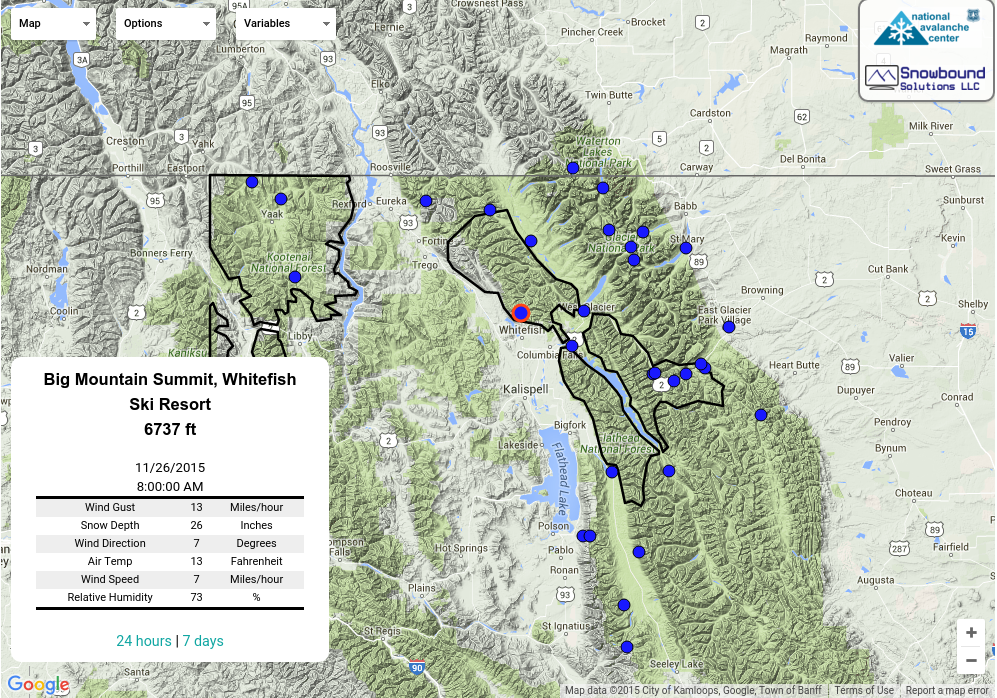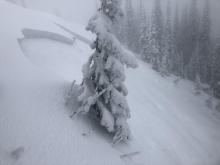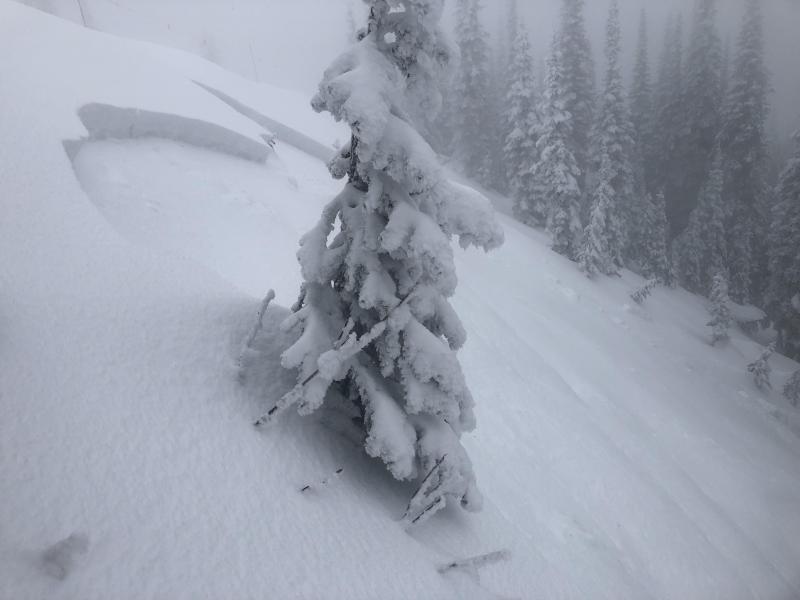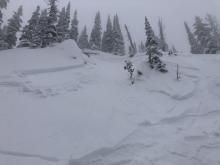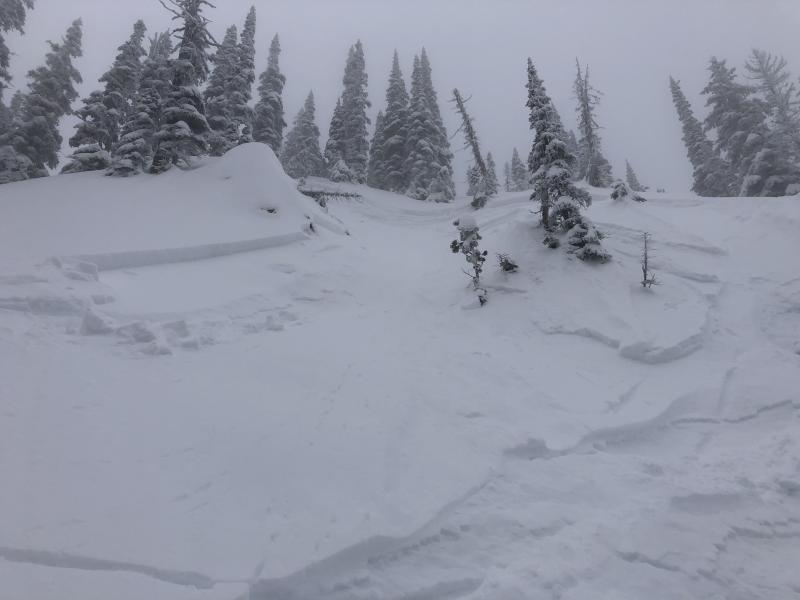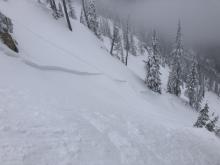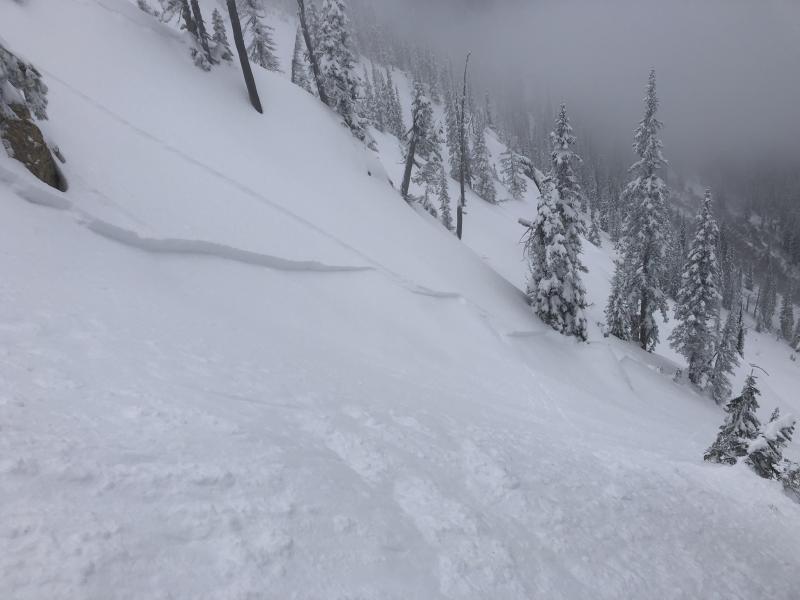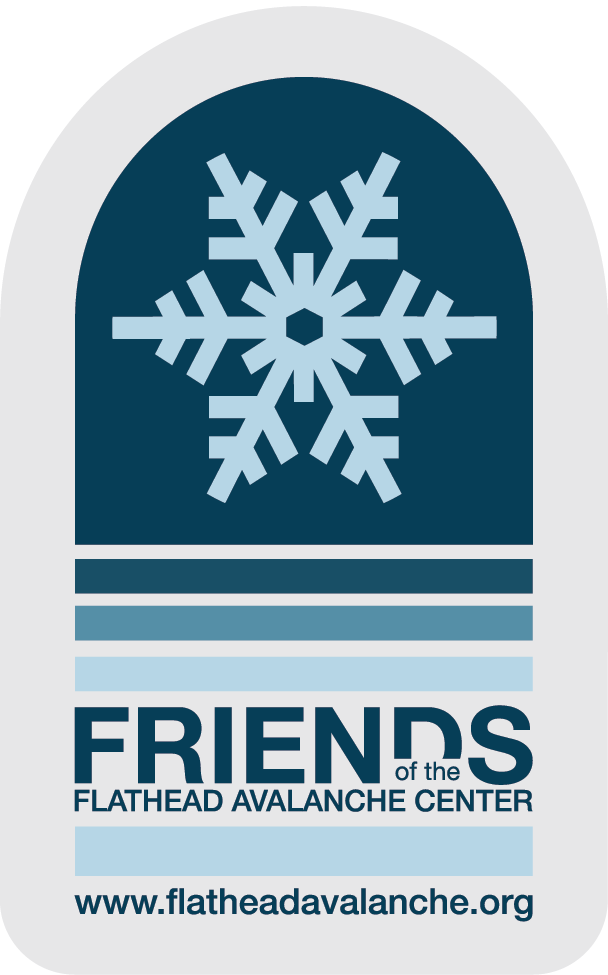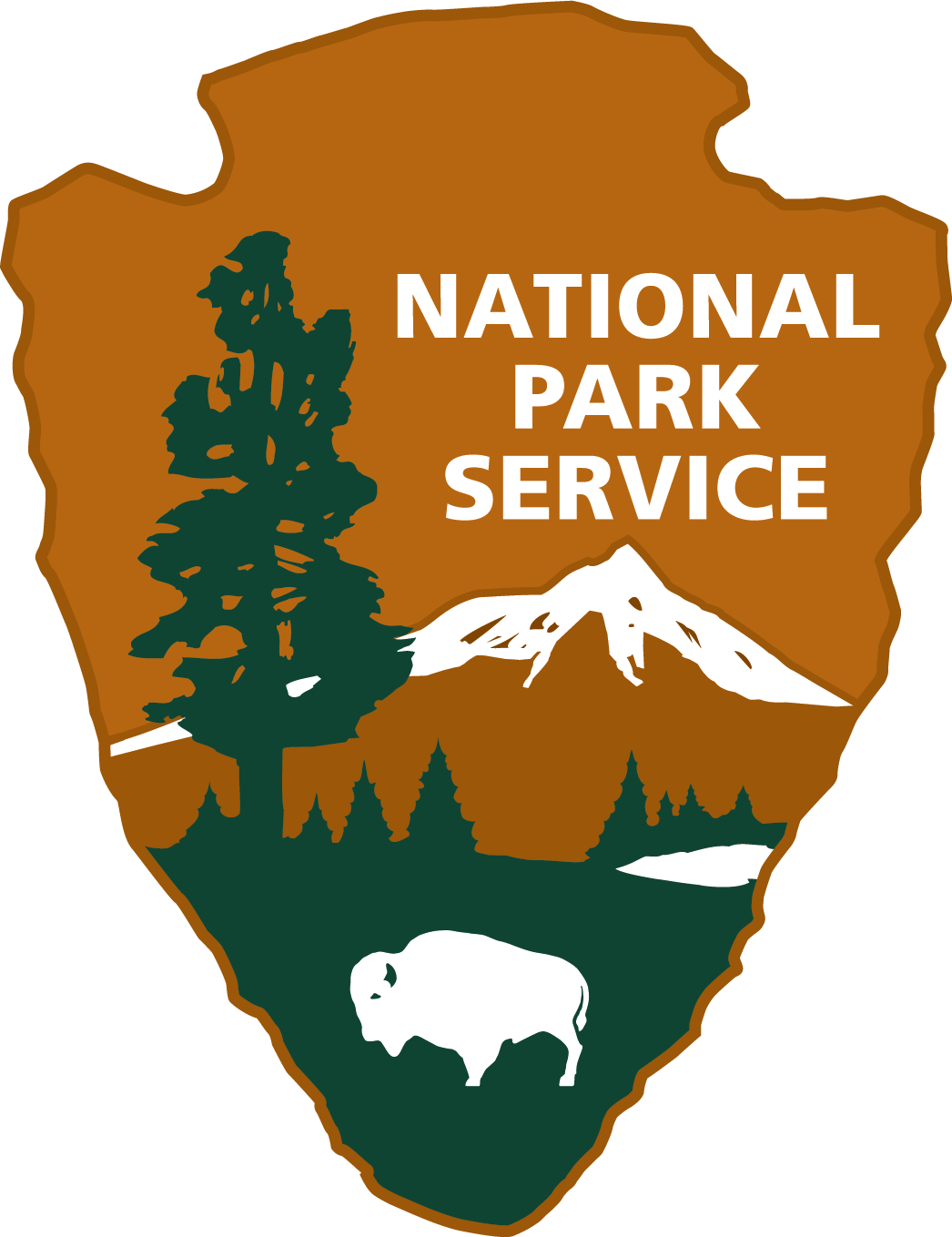| Friday | Friday Night | Saturday | |
|---|---|---|---|
| Cloud Cover: | Snow increasing during the day | Moderate to heavy snow | Snow tapering during the morning |
| Temperatures: | 25 to 30 deg. F. | 13 to 18 deg. F. | 27 to 32 deg. F. |
| Wind Direction: | E to SE | SW | SW |
| Wind Speed: | 5 to 10 mph with 25 mph gusts | 5 to 10 mph with 20 mph gusts | 0 to 5 mph |
| Snowfall: | 2 to 4 in. | 3 to 5 in. | 0 to 1 in. |
| Snow Line: |
Whitefish Range
Swan Range
Flathead Range and Glacier National Park
How to read the forecast
The avalanche danger is MODERATE today but may rise to CONSIDERABLE later today if snowfall amounts are higher than forecasted. Changing conditions may develop with increasing snowfall intensity and wind loading. Evaluate storm totals and bonding of new snow to the old snow surface. Cracking in the snow surface is a signs of storm slab instability.
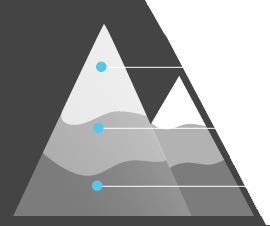
2. Moderate
?
Above 6500 ft.
2. Moderate
?
5000-6500 ft.
1. Low
?
3500-5000 ft.
- 1. Low
- 2. Moderate
- 3. Considerable
- 4. High
- 5. Extreme
-
Type ?
-
Aspect/Elevation ?
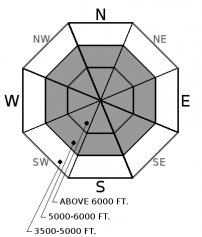
-
Likelihood ?CertainVery LikelyLikelyPossible
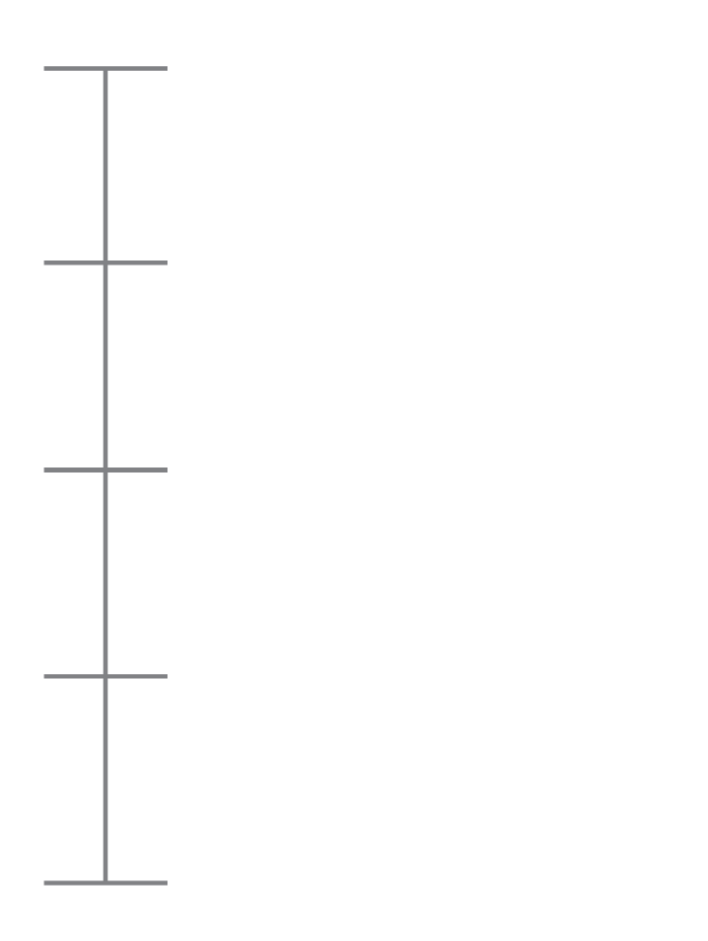 Unlikely
Unlikely -
Size ?HistoricVery LargeLargeSmall

Light snowfall began overnight in the northern portion of our forecast area with 1-2” of new snow. Shallow storm slabs or loose snow avalanches could develop during the day with additional snowfall and an increase in snowfall rates. New snow instabilities are most likely to form on steep, mid/ upper elevation slopes or sunny, lower elevation slopes that formed a surface crust yesterday. Slabs will become more widespread and sensitive to human triggering as snow depths increase. Evaluate storm totals, new snow bonding, and look for cracks in the snow surface as signs of instability. Use small test slopes to monitor changing conditions before committing to bigger, more aggressive terrain.
Observations yesterday from the JFS Canyon and the Flathead Range confirmed a consolidated upper snowpack on shady, mid to upper elevation slopes. Yesterday’s warm temperatures contributed to a small, loose wet cycle on sunny, lower elevation slopes. After a hard freeze overnight, these slopes will have a surface crust this morning.
4 to 6” of snowfall today could form shallow storm slabs or loose snow avalanches on steep, mid to upper elevation slopes or where a surface crust exists. Slabs may become more widespread and sensitive to human triggering as snowfall intensity and snow depths increases. Evaluate storm totals and new snow bonding before committing to steeper, more aggressive terrain. Look for cracks in the snow surface as a sign of instability and don’t become complacent if visual or audible signs of instability are lacking. Use all the tools in the toolbox to make objective decisions during times of changing conditions.
A sharp decline in local deep slab avalanche activity, supplemented by a lack of explosive results at a regional scale, suggests deep instabilities are dormant under our current weather patterns. We have removed the problem for now but will bring it back when we see another big loading event or spring thaw. Forecasting for deep slabs carries a large amount of uncertainty. We remain uneasy about the potential for a cornice-fall triggered deep slab in the alpine terrain of the Flathead Range and Glacier Park. This blog post provides more insight into the problem.
Light snowfall began overnight in the northern mountains and is spreading southward this morning. NW Montana is currently sandwiched between two stationary fronts with a large low-pressure system positioned off the Washington coast. Snowfall intensity picks up this afternoon/ evening with highest snow accumulations overnight. Snowfall begins to tapering during the morning on Saturday and we can anticipate 6 to 10" of snow by Saturday morning, with locally higher amounts.
This advisory applies only to backcountry areas outside established ski area boundaries. This advisory describes general avalanche conditions and local variations always occur. This advisory expires at midnight on the posted day unless otherwise noted. The information in this advisory is provided by the USDA Forest Service who is solely responsible for its content.

